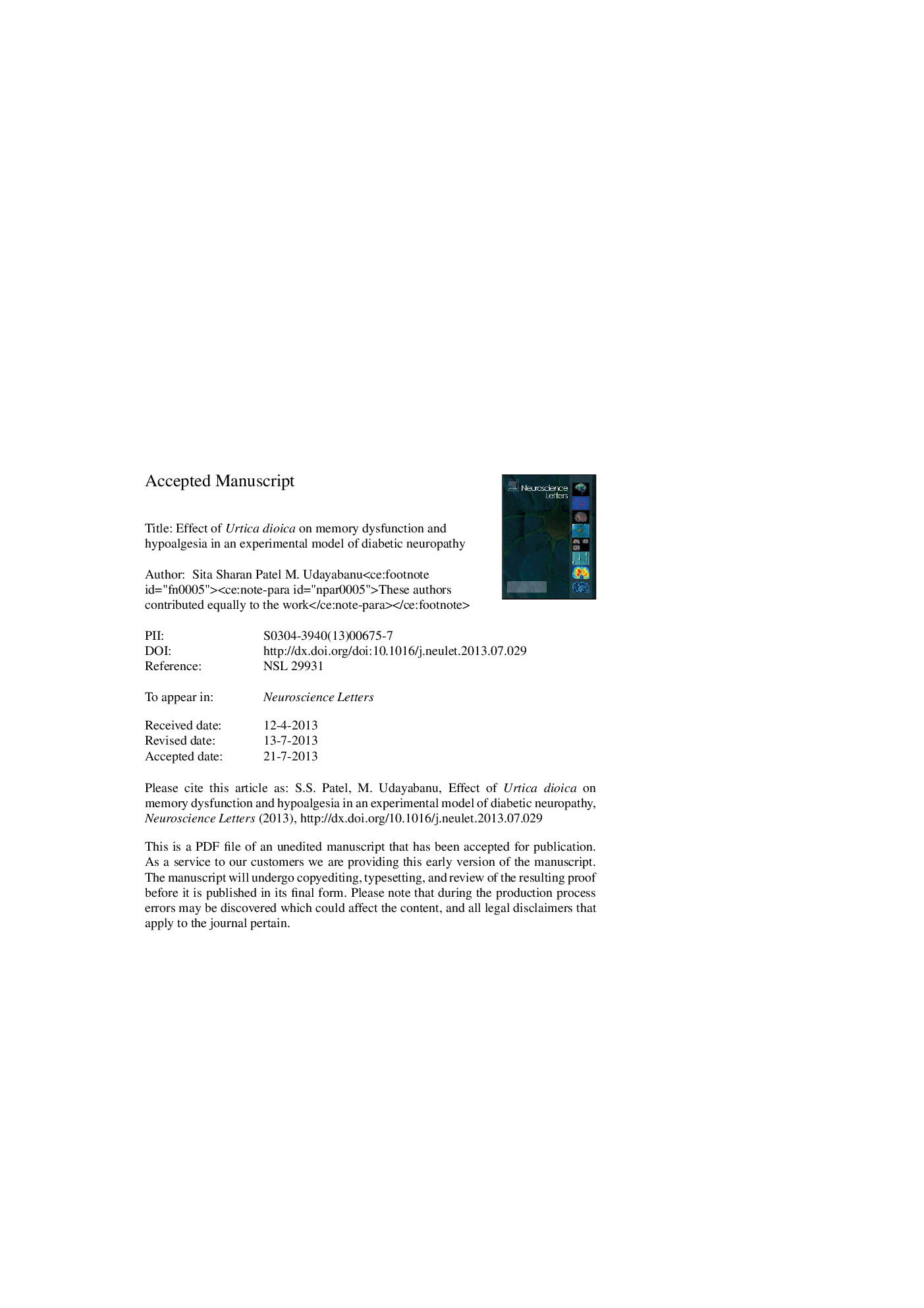| Article ID | Journal | Published Year | Pages | File Type |
|---|---|---|---|---|
| 6282815 | Neuroscience Letters | 2013 | 22 Pages |
Abstract
Diabetic neuropathy is considered as a disease of the peripheral nervous system, but recent evidences suggest the involvement of central nervous system as well. In this study we evaluated the effect of Urtica dioica (UD) extract against memory dysfunction and hypoalgesia on a mouse model of streptozotocin (STZ) induced diabetic neuropathy. STZ (50Â mg/kg, i.p. consecutively for 5 days) was used to induce diabetes, followed by treatment with the UD extract (50Â mg/kg, oral) and rosiglitazone (5Â mg/kg, oral) for 8 weeks. Cognitive functions were evaluated using Morris water maze and passive avoidance step through task. Pain thresholds were measured using thermal, mechanical and chemical induced hyperalgesia. We observed that chronic diabetes resulted in a decline in circulating insulin level, elevated blood glucose, reduced body weight, increased water intake, cognitive impairment and hypoalgesia. UD significantly reduced the blood glucose and polydypsia, as well as improved the body weight, insulin level, cognition and insensate neuropathy. In conclusion, UD showed results comparable to rosiglitazone in reversing the long standing diabetes induced complications such as central and peripheral neuronal dysfunction.
Keywords
Related Topics
Life Sciences
Neuroscience
Neuroscience (General)
Authors
Sita Sharan Patel, M. Udayabanu,
